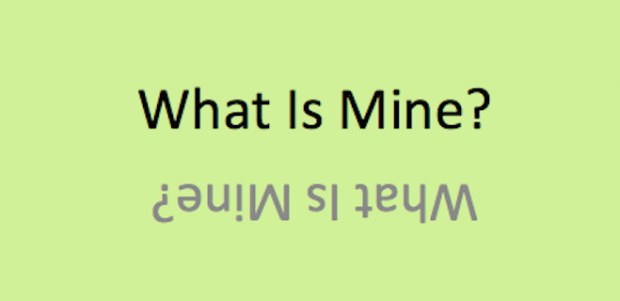Shuli Passow
Shuli Passow is a Jewish educator and communal professional who most recently served as the director of community initiatives at Jewish Funds for Justice, where she worked with synagogues across the country to support their involvement in congregation-based community organizing. She has taught widely in youth and adult education settings, and is particularly passionate about exploring issues of justice, compassion, environmentalism and economics through Jewish text. Shuli is currently pursuing rabbinic ordination at the Jewish Theological Seminary in New York and serves as a rabbinic fellow at the Bronfman Center for Jewish Student Life at New York University.
Faith and Practice
What Is Mine? Finding Humbleness, Not Entitlement, in Shmita
The Moroccan-born 18th-century biblical commentator Or HaHayim (Hayim ben Attar) insightfully observed that the reality of war in the world causes fear and pain, even to those who do not reside in the war zone but who live lives of material comfort and safety.
This insight mirrors my experience and emotional state as we begin 5775: While deeply grateful for the abundance of blessings in my life, I don’t feel at peace given current events and the suffering that persists in our world.
And so I’ve kept Or HaHayim’s words in mind, with the hope that we may all be able to approach this season next year with a greater sense of security, calm and blessing in our own lives and throughout the world.
Faith and Practice
Let It Go: From the Mountaintop to the Field
How taking a fresh look at Shavuot, Sinai and shmita can nourish the spiritual side of our activism — and help us embrace letting go and the “content of our covenant.”
Faith and Practice
Kol Nidre and the Real Work of Personal Change
I begin each day of my life with a ritual. I wake up at 5:30 am, put on my workout clothes, my leg warmers, my sweatshirt and a hat. I walk outside my Manhattan home, hail a taxi, and tell the driver to take me to the Pumping Iron gym at 91st street and 1st avenue, where I work out for 2 hours. The ritual is not the stretching and weight training I put my body through each morning at the gym; the ritual is the cab. The moment I tell the driver where to go, I have completed the ritual. —Twyla Tharp, “The Creative Habit”
Why do we recite Kol Nidre on Yom Kippur night? The exact history of this prayer is a little vague, but what is clear is that this prayer is not a prayer at all: the Aramaic text, dating from at least the ninth century, is a legal formulation for the annulment of vows. It doesn’t mention the themes of the season: forgiveness, teshuva, renewal. It does not mention God. Unrelated in its content to the rest of the Yom Kippur liturgy, it seems at first blush to be a strange way to start a 25-hour period of intense introspection and self-reflection.
Part of Kol Nidre’s rhetorical power comes from its repetitive language: READ MORE
Faith and Practice
Praying With Our Lips: Another Side of Heschel’s Legacy
“Social justice activists of all religious and spiritual stripes,” writes Shuli Passow, “have something to learn from what Heschel understood as the power and practice of praying — not with one’s feet, but with one’s mouth, lips, and words.”
![[the current issue of ZEEK]](../../image/2/100/0/5/uploads/leftistethicistgraphic-52842c6a.png)
- 5000 Pages of Zeek
- Founded in 2001, Zeek was the first Jewish online magazine, and we have over 5000 pages online to prove it, all available free of charge. Read more in the Archive.




